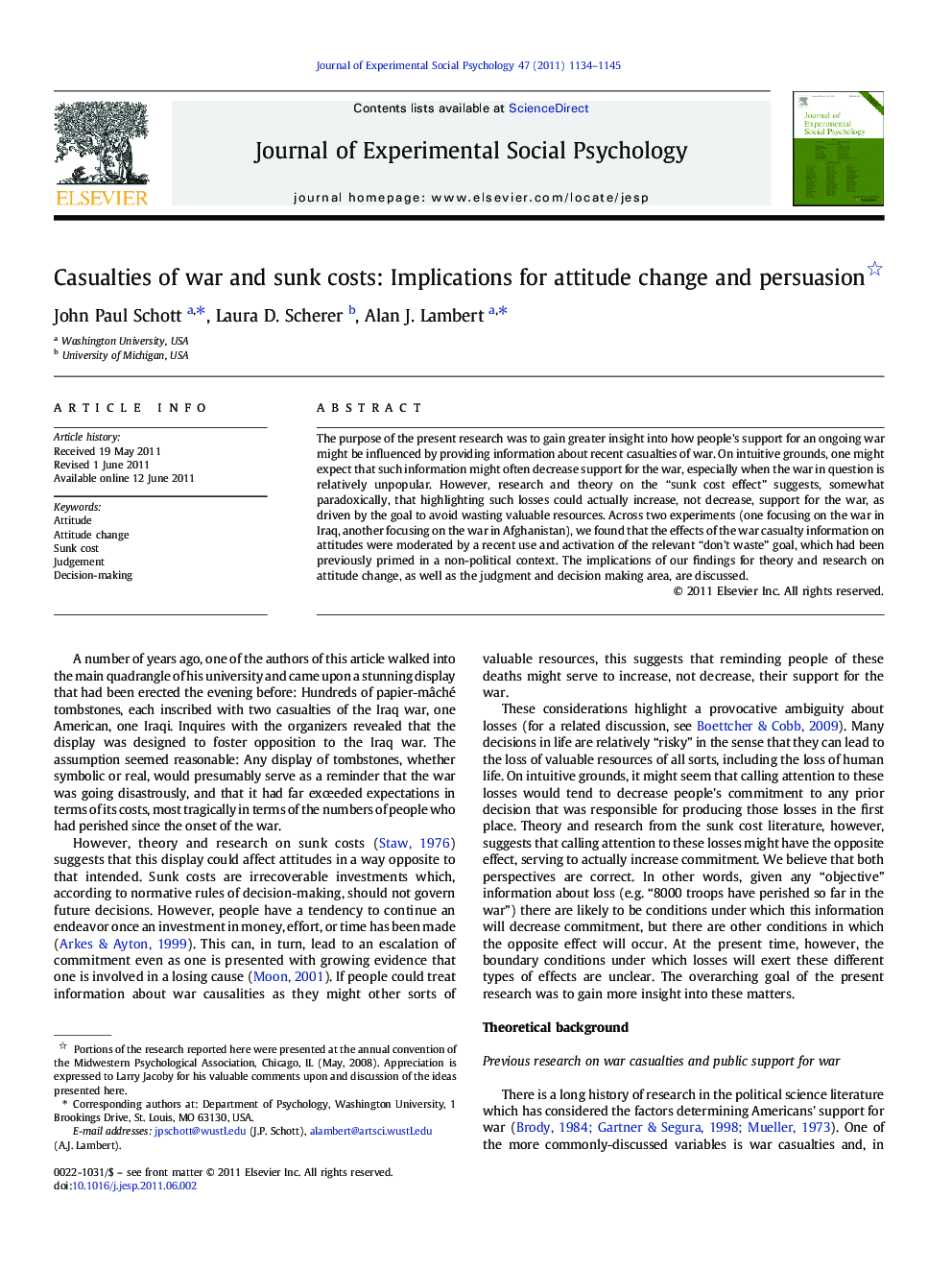| Article ID | Journal | Published Year | Pages | File Type |
|---|---|---|---|---|
| 947978 | Journal of Experimental Social Psychology | 2011 | 12 Pages |
The purpose of the present research was to gain greater insight into how people's support for an ongoing war might be influenced by providing information about recent casualties of war. On intuitive grounds, one might expect that such information might often decrease support for the war, especially when the war in question is relatively unpopular. However, research and theory on the “sunk cost effect” suggests, somewhat paradoxically, that highlighting such losses could actually increase, not decrease, support for the war, as driven by the goal to avoid wasting valuable resources. Across two experiments (one focusing on the war in Iraq, another focusing on the war in Afghanistan), we found that the effects of the war casualty information on attitudes were moderated by a recent use and activation of the relevant “don't waste” goal, which had been previously primed in a non-political context. The implications of our findings for theory and research on attitude change, as well as the judgment and decision making area, are discussed.
► We examined the factors that would affect people's support for ongoing wars in Iraq and Afghanistan. ► Two experiments investigated the conditions under which war casualties would trigger a sunk cost effect on commitment. ► War casualties will increase commitment toward an ongoing war but only if the don't waste goal is accessible.
